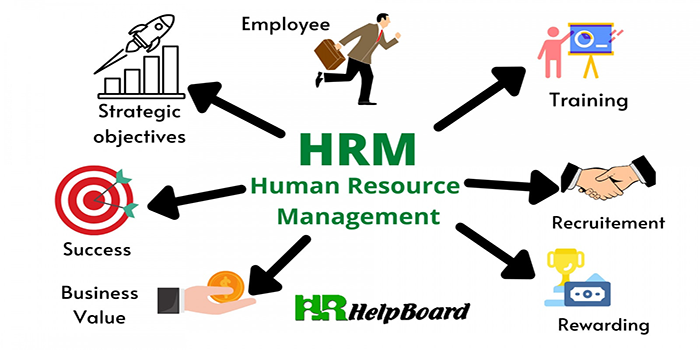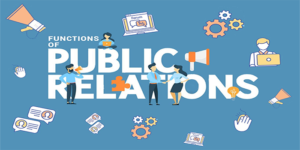
Human resources management (HRM) is a business function that oversees the recruitment, management, and development of a company‘s people. HRM deals with all aspects of managing a workforce, including hiring and firing, training, payroll, benefits, and employee relations. The HRM team is responsible for ensuring the company‘s workforce is properly aligned to achieve its strategic objectives. The HRM team also develops and implements policies and procedures to ensure the efficient, legal, and ethical operation of the company.
Role of Human Resource Management
Human Resource Management (HRM) is the process of recruiting, selecting, inducting employees, providing orientation, imparting training and development, appraising the performance of employees, deciding compensation and providing benefits, motivating employees, maintaining proper relations with employees and their trade unions, ensuring employees safety, welfare and healthy measures in compliance with labor laws of the land. HRM plays a strategic role in managing people and the workplace culture and environment. Effective HRM enables employees to contribute effectively and productively to the overall company direction and the accomplishment of the organization’s goals and objectives. HRM is also responsible for managing and developing a quality workforce, which helps an organization to maintain a competitive edge in the market. HRM is also responsible for ensuring that all relevant legal and regulatory compliance requirements are met.
What is the most important role of HRM?
The most important role of HRM is to ensure that a company‘s human capital is managed in a way that maximizes its potential. This includes hiring and training staff, developing and implementing policies, setting performance standards, and providing employee benefits. In addition, HRM plays a key role in promoting a positive work environment and culture that encourages employee engagement, productivity, and loyalty.
What is human resource management and its functions
Human Resource Management (HRM) is the process of managing employees in an organization. It consists of activities such as hiring, training, appraising performance, motivating employees, and providing benefits. The primary functions of HRM include:
1. Recruiting and Hiring: This involves finding qualified job applicants and selecting the best fit for the organization.
2. Training and Development: HRM provides training and development opportunities to employees to ensure they remain competent and up–to–date with the latest skills and knowledge.
3. Performance Management: This involves setting objectives, measuring and evaluating performance, and providing feedback to employees.
4. Compensation and Benefits: HRM administers compensation and benefit programs to attract and retain talent in the organization.
5. Employee Relations: HRM builds and maintains relationships between employers and employees. This includes resolving disputes, handling grievances, and managing employee relations.
6. Compliance and Regulations: HRM ensures that the organization is compliant with relevant laws and regulations.
Best University Human Resource Management in India
1. XLRI Jamshedpur
2. Indian Institute of Management (IIM), Ahmedabad
3. Indian Institute of Management (IIM), Bangalore
4. Indian Institute of Management (IIM), Lucknow
5. Indian Institute of Management (IIM), Indore
6. Indian Institute of Management (IIM), Kozhikode
7. Indian Institute of Technology (IIT), Delhi
8. Indian Institute of Technology (IIT), Kanpur
9. Faculty of Management Studies, University of Delhi
10. Symbiosis Institute of Business Management, Pune
What is Syallbus of Human Resource Management Course
The syllabus of a Human Resource Management course typically includes topics such as:
• Introduction to Human Resource Management
• Legal and Regulatory Requirements
• Recruitment and Selection
• Performance Management
• Employee Development
• Employee Relations
• Benefits and Compensation
• Employment Law
• Organizational Development
• Strategic Human Resource Management
• Training and Development
• Diversity Management
• Labor Relations






